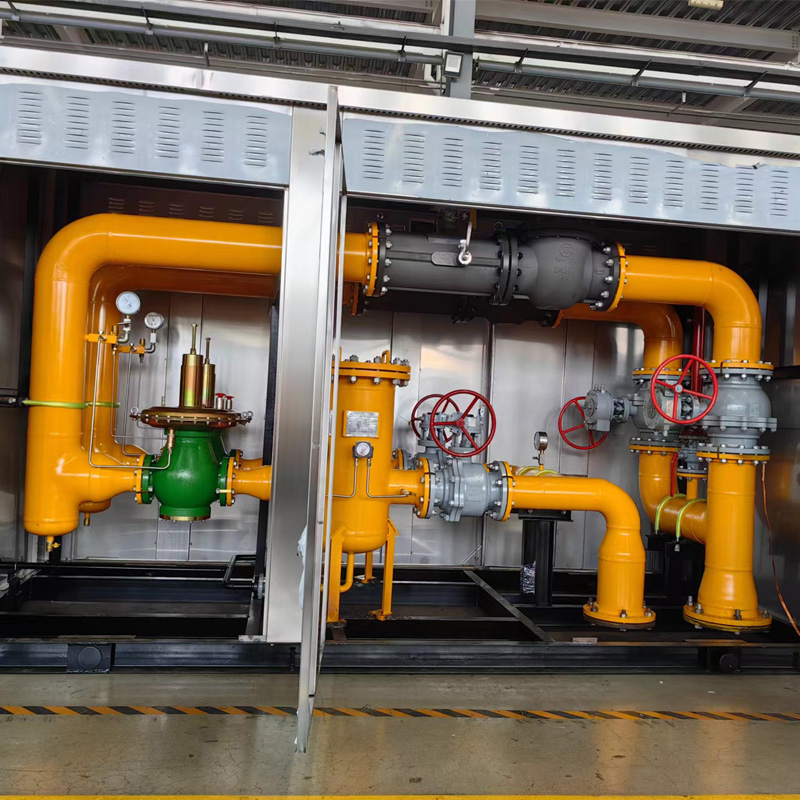
Nov . 27, 2024 04:31
Back to list
Exploring the Efficiency of Gas Filters in Air Quality Control
Understanding Gas Filters Their Importance and Function
Gas filters play a crucial role in various industries and applications, serving as an essential component for maintaining air quality and protecting both equipment and human health. As our understanding of air pollution and its impacts continues to evolve, the use of gas filters has become even more significant. This article explores the fundamentals of gas filters, their types, applications, benefits, and considerations for their use.
What is a Gas Filter?
A gas filter is a device designed to remove impurities, contaminants, or specific gases from a stream of gas. These filters utilize different mechanisms, such as adsorption, absorption, or chemisorption, depending on the type of gases being filtered and the desired outcomes. The primary function of a gas filter is to ensure that harmful substances do not enter the environment or industrial systems, thereby enhancing safety and efficiency.
Types of Gas Filters
There are several types of gas filters, each tailored to address specific filtering needs
1. Activated Carbon Filters These filters utilize activated charcoal to adsorb a wide range of volatile organic compounds (VOCs), odors, and gases. They are often used in air purification systems and industrial exhaust systems.
2. HEPA Filters High-Efficiency Particulate Air (HEPA) filters can capture small particles, including dust, pollen, and some bacteria. While primarily used for particulate matter, they are also effective in certain gas applications when paired with additional filtration systems.
3. Chemical Gas Filters These filters are designed to remove specific harmful gases through chemical reactions. An example is scrubbers that neutralize acidic gases like sulfur dioxide by reacting them with a base.
4. Membrane Filters These are used to separate gases based on their molecular size or properties. Membrane technology is increasingly gaining traction in industrial applications for separating gases like oxygen and nitrogen.
Applications of Gas Filters
Gas filters find extensive applications across various sectors
gas filter

- Industrial Manufacturing In manufacturing facilities, gas filters help manage emissions and ensure that the air quality meets regulatory standards
. They are crucial in controlling pollutants that may harm the environment and public health.- Environmental Protection Gas filtration systems are employed in waste management facilities, landfills, and wastewater treatment plants to mitigate the release of harmful gases into the atmosphere.
- HVAC Systems In heating, ventilation, and air conditioning (HVAC) systems, gas filters maintain indoor air quality by removing pollutants and allergens, creating a healthier living and working environment.
- Laboratory Settings Laboratories often require specialized gas filters to ensure that research and experimentation do not produce harmful emissions, thus protecting both researchers and the environment.
Benefits of Gas Filters
The implementation of gas filters comes with numerous advantages
1. Health Protection By removing harmful gases and particulates, gas filters protect workers and the general public from adverse health effects associated with air pollution.
2. Regulatory Compliance Many industries are subject to environmental regulations regarding emissions. Using gas filters helps organizations comply with these regulations, avoiding penalties and enhancing corporate responsibility.
3. Equipment Longevity Gas filters prevent the ingress of harmful substances into machinery and equipment, leading to reduced maintenance costs and extended operational life.
4. Improved Efficiency Clean air systems function more efficiently, reducing energy costs and improving overall productivity.
Conclusion
In conclusion, gas filters are indispensable in today’s industrial and environmental landscape. Their ability to purify the air by removing harmful contaminants not only protects human health but also promotes compliance with environmental regulations and enhances operational efficiency. As technology advances, we can expect to see even more innovative gas filtering solutions that further improve air quality and safety across various applications. Understanding and utilizing gas filters effectively is paramount in the pursuit of a cleaner and healthier environment for future generations.
Latest news
-
Safety Valve Spring-Loaded Design Overpressure ProtectionNewsJul.25,2025
-
Precision Voltage Regulator AC5 Accuracy Grade PerformanceNewsJul.25,2025
-
Natural Gas Pressure Regulating Skid Industrial Pipeline ApplicationsNewsJul.25,2025
-
Natural Gas Filter Stainless Steel Mesh Element DesignNewsJul.25,2025
-
Gas Pressure Regulator Valve Direct-Acting Spring-Loaded DesignNewsJul.25,2025
-
Decompression Equipment Multi-Stage Heat Exchange System DesignNewsJul.25,2025

